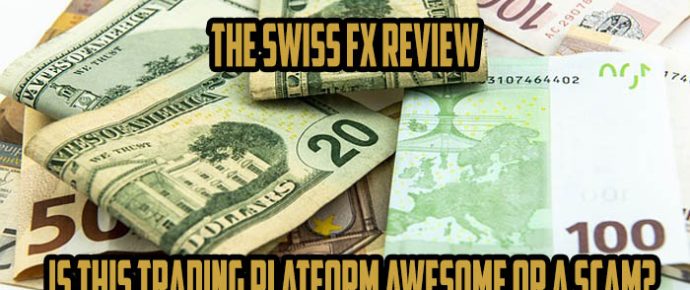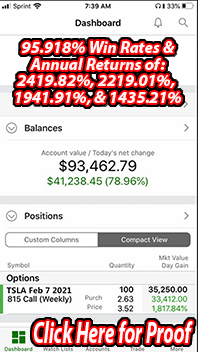The Swiss FX Review: Is this Trading Platform Awesome or a Scam?
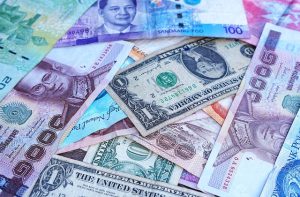 When it comes to online trading platforms, there are a lot of options to choose from. So, how do you know if a platform is right for you? This Swiss FX Review will help you answer that exact question. In it, we’ll take a close look at the features and benefits of the Swiss FX platform to help you decide if it’s the right fit for your trading needs.
When it comes to online trading platforms, there are a lot of options to choose from. So, how do you know if a platform is right for you? This Swiss FX Review will help you answer that exact question. In it, we’ll take a close look at the features and benefits of the Swiss FX platform to help you decide if it’s the right fit for your trading needs.
Are you ready to know more? Keep scrolling!
Forex Trading Platform Reviews: What is Swiss FX?
Swiss FX Trade is an online trading broker owned by unknown person or organization and located at 53rd midtown Manhattan, New York City. USA. They can be reached by phone number at 1 347 872-6870 or by email at support@swissfxtrade.com. You can also find their website at swissfxtrade.com.
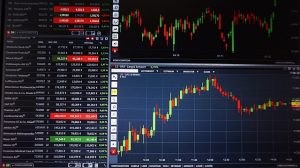
How Does the Swiss Forex Broker Work?
Swiss FX is considered an unlicensed forex broker. Unlicensed forex brokers are not subject to the same regulatory oversight as licensed brokerages. These operators often take advantage of inexperienced investors by promising high returns with little to no risk. They may also engage in aggressive marketing tactics, such as guaranteeing stop losses or providing false information about their trading success. Unlicensed forex brokers may also engage in insider trading, front-running trades, or other illegal activities. These scams can be difficult to spot, so it’s important for investors to do their research before investing with any broker.
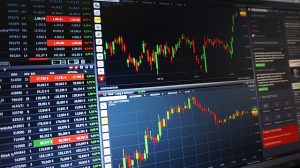
Swiss FX Trade Reviews: Is this Forex Trading Platform Awesome or a Scam?
If you’re thinking about working with a broker to buy or sell stocks, it’s important to make sure that the broker is legitimate. Here are a few things you can do to ensure that your broker is legal:
- Check whether the broker is registered with the SEC. All legitimate brokers should be registered with the Securities and Exchange Commission. You can find a list of registered brokers on the SEC’s website.
- Ask for references. Once you’ve confirmed that the broker is registered with the SEC, ask for references from other clients who have used their services. A reputable broker should be able to provide you with some names and contact information of satisfied customers.
- Verify the Broker-Dealer’s background. In addition to being registered with the SEC, all Broker-Dealers must also be a member of either FINRA or SIPC.

By doing this, you’ll be able to determine if the company you’re looking into is an offshore and/or unregulated firm or whether they are subject to centralized regulation.
When a broker is unregulated or is regulated by a body that is not in your country, you have little to no legal solution or course of action if your money is stolen. If there is theft, complaints can only be filed if the broker has a license from the regulatory body in your country.
There are various regulatory authorities that issue brokerage licenses. The most common regulator is the the following:
- Financial Industry Regulatory Authority (FINRA)
- Securities and Exchange Commission (SEC)
- Commodity Futures Trading Commission (CFTC).
Each of these organizations has different requirements for becoming a licensed broker. For example, FINRA requires brokers to pass two examinations, the Series 7 and Series 63 or 66. The SEC requires brokers to pass the Series 7 examination, as well as an additional exam specific to their area of focus. The CFTC does not have a specific examination requirement but does require brokers to meet certain financial requirements.
In order to maintain their license, brokers must adhere to certain rules and regulations set forth by their respective regulatory authority. For example, FINRA requires brokers to complete continuing education courses on an annual basis.
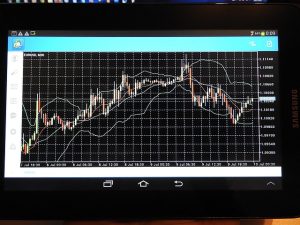
How Do Online Trading Scams Work?
An online trading scam is a scheme that tricks investors into thinking they are making money off of their investments when they are actually losing money (like in the case of the scam Bernie Madoff ran). These scams typically involve the use of fake websites and promises of high returns with little to no risk. There are many ways that scammers can take advantage of investors, but there are also some red flags that can help you avoid these schemes.
One common way that online trading scams work is by using fake websites. These websites may look legitimate at first glance, but they often have false information about the company, the investment opportunities, and the potential returns. Scammers will also often use pressure tactics to get people to invest sooner than they should, which can lead to even more losses.
Another way that these scams work is by promising high returns with little to no risk. In reality, the only way to make money in any investment is to take a risk. One of the biggest red flags that you should watch for is if an investment opportunity seems too good to be true.

Frequently Asked Questions
What is Swiss Union?

Swiss Union is a unique political system that allows for a high degree of self-governance while still maintaining a strong central government. The Swiss Confederation is made up of 26 cantons, or member states, each with its own constitution, parliament, and government. The cantons retain a great deal of autonomy, but they also cede some authority to the federal government in Bern. This system has allowed Switzerland to remain stable and prosperous for centuries, and it continues to be a model for other countries today.
What are swiss markets?

The Swiss markets are some of the most diverse in the world. From banking and finance to pharmaceuticals and insurance, there is a wide range of industries represented. The Swiss Market Index (SMI) is the benchmark index for the Swiss stock market. It is made up of the 20 largest and most liquid companies traded on the Zurich Stock Exchange. The SMI Index covers around 85% of the total market capitalization of the Swiss stock market. The Swiss franc (CHF) is one of the world’s major currencies and is considered a safe haven currency. The Swiss National Bank sets interest rates in order to maintain price stability in Switzerland.
Trade forex reviews: What are the benefits of trading forex?

Forex, or foreign exchange, trading is the simultaneous buying of one currency and selling of another. Currencies are traded through a broker or dealer and are traded in pairs. For example, the euro and the U.S. dollar (EUR/USD) is the most common currency pair. The purpose of forex trading is to buy or sell different currencies with the aim of making profits through the changes in their value. There are several benefits of trading forex, including: The forex market is open 24 hours a day, 5 days a week (from Sunday 5 p.m. to Friday 5 p.m. ET). This allows traders to trade at their convenience. The large amount of leverage that is available in the forex market can lead to higher profits compared to other markets.
Dukascopy reviews: What it is and its benefits?

A Swiss online bank with offices in Riga, Kyiv, Moscow, Kuala Lumpur, Hong Kong, Shanghai, Dubai, and Tokyo, Dukascopy Bank offers online and mobile banking, financial services, and trading. With over 300 workers worldwide. Dukascopy has a 91 out of 99 total Trust Score, which is regarded as being low risk. While Dukascopy does run a bank and is authorized by two tier-1 regulators (high trust), zero tier-2 regulators (average trust), and zero tier-3 regulators, it is not publicly traded (low trust). Tier-1 regulators Japanese Financial Services Authority (JFSA) and Swiss Financial Market Supervisory Authority have granted Dukascopy authorization (FINMA). Dukascopy provides customers with 60 FX pairs and 593 CFDs totaling 653 symbols to trade across numerous marketplaces. Additionally, Dukascopy allows cryptocurrency trading using both the actual underlying (non-CFD) for its own newly launched cryptocurrencies as well as CFDs on key crypto assets.
What are some best trading tools to use today?

There are many different trading tools available to investors today. Some popular tools include online brokerages, stock analysis software, and mobile apps. Each tool has its own unique features and benefits. For example, online brokerages offer investors the ability to trade stocks and other securities online. Stock analysis software can help investors research and analyze potential investments. Mobile apps can provide real-time quotes and market data. Investors should consider their own goals and needs when selecting a trading tool. Different tools can be better or worse depending on an investor’s individual circumstances. However, all of these tools can be useful for anyone looking to make informed investment decisions.

